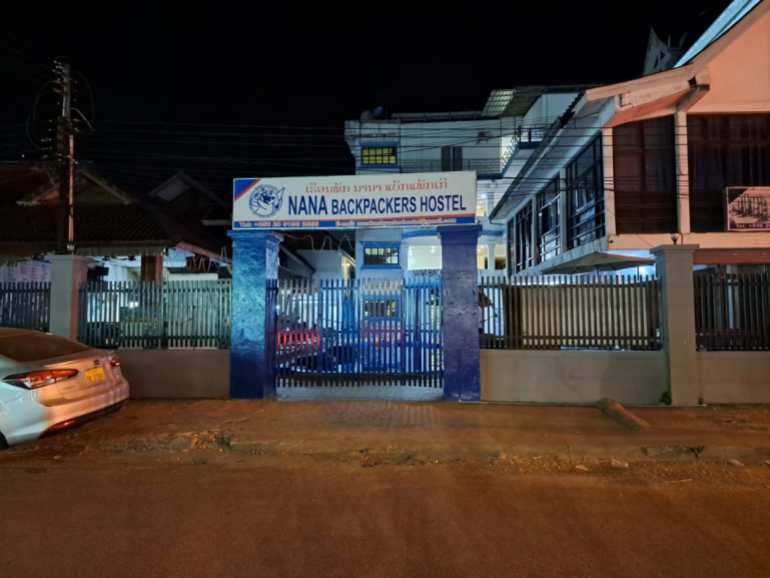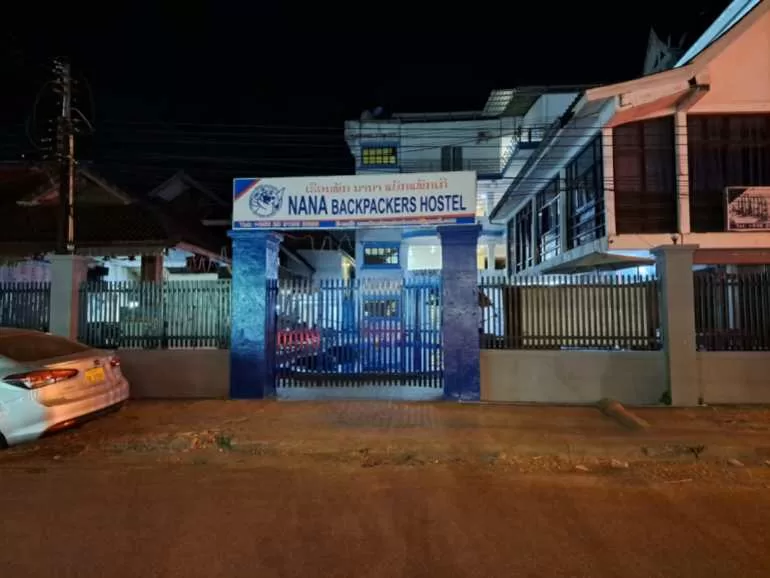Vang Vieng, Laos – The streets of Vang Vieng are quieter than usual as global scrutiny falls on the backpacker hotspot following the deaths of six foreign tourists from suspected methanol poisoning.
Across from Nana Backpackers Hostel, where all six victims stayed before falling ill, a local tuk-tuk driver sits in his vehicle smoking a cigarette and chatting with his young son.
“I don’t know much of this story. I only saw about it on Facebook,” the tuk-tuk driver says, requesting anonymity.
“I am often here to transport tourists. In this hotel there are just foreigners, no Asians usually. They have parties every Friday night that last until Saturday morning.”
On this most recent Saturday morning, though, tourists are few and far between.
Nana Backpackers Hostel’s gates are closed but unlocked. There is no police presence nor any notice indicating it is closed for business.
The driver says he is concerned about his 10-year-old son growing up as a teenager in Vang Vieng. He wants both locals and tourists to be safe.
“I haven’t noticed much change in my business yet, but this area is definitely quieter now, and there aren’t as many tourists needing transport,” he says.

Two Australians, a British citizen, two Danes, and an American have died in what is believed to be a case of mass poisoning from methanol, an industrial chemical often used in bootleg alcohol.
News reports say the victims visited nearby Jaidee Bar before being found unconscious at Nana Backpackers Hostel.
The hostel’s manager has reportedly been taken into police custody, though Lao authorities have not confirmed this.
With investigations ongoing, Lao authorities have provided few details about the case. Embassies of Denmark, Australia, the United Kingdom, and the United States have declined to comment.
Foreign backpackers in the town continue to come and go, with some appearing more concerned about the risks than others.
“We heard what happened. We are not too worried about it,” says one Spanish tourist in her 20s.
Alice Anastasi, a 23-year-old Australian tourist, says hostels are being “more careful” with guests, parties and the sale of alcohol.
Among local businesses, some owners are reflecting on the need for a better balance between revenue-generating tourism and safety.
“This is my first time seeing something like this happen in Vang Vieng,” a local tour agency operator says, asking to remain anonymous.
“That so many people were affected like this. Normally lots of people get drunk in bars, but nothing like this ever happened.”
In Vang Vieng and other Southeast Asian tourist spots, the proliferation of tainted alcohol has been blamed on economic pressures and weak regulations.
Some local producers use methanol instead of ethanol because it is cheaper, and can be used to make drinks stronger or improve low-quality alcohol.
Southeast Asia has the highest rates of methanol poisoning globally, with Indonesia having the most reported cases, though Cambodia, Vietnam, and the Philippines are also affected.
Some tourism industry figures say the deaths have exposed the dangerous incentives driving backpacker-focused tourism in Vang Vieng.
A local man involved in organising outdoor activities for backpackers says the business model of offering cheap alcohol to budget-conscious tourists encourages unsafe cost-cutting practices such as using methanol.
“Some tourists feel that [the alcohol] is not strong enough, and they ask to have something more,” he says, asking to remain anonymous.
“It’s not a secret,” he says of bars offering cheap drinks promotions.
For Vang Vieng’s tourism industry, a crucial economic driver for the region, the poisonings have had an immediate effect, locals say.
“I did see a change in business since the incident, for sure. Because Nana Hostel had lots of customers,” the tour operator says.
“We got a lot of them to come and buy tour packages with hot-air ballooning or tubing, but now not many at all.”
Vang Vieng’s reputation as a party destination has been a point of tension for years.
The town, about 130km (80 miles) from the capital Vientiane, has been working to shed its notorious reputation for risky behaviour since 2011, when 27 people drowned while tubing in the Nam Song River.
In recent years, local authorities have tried to attract more high-end tourists by placing greater focus on 4- and 5-star hotels and specially designated entertainment areas away from the town centre.
With the international spotlight on the town following the latest tragedy, authorities have been under pressure to act decisively.
“I saw all the international news sites that wrote about it. It causes suffering for this city,” the tour operator says.
Even so, he remains optimistic about Vang Vieng’s future as a tourist destination.
“I still think it’s very safe if tourists come to enjoy the nature, not for alcohol or illegal drugs. Vang Vieng is still safe, but be careful when you go to bars to not try things you never try.”
While international media have covered the story extensively, many locals, who rely on Facebook for news, are unaware of what happened.
“I am not scared, it’s safe here,” a vendor selling fruit just a few metres down the road from Nana Hostel says.
“Yeah, foreigners often come to drink or take some drugs here. But there are mostly Lao people who come to this market. Not really foreigners,” the woman says.
Vang Vieng has seen 35 percent more visitors this year compared with 2023, according to government statistics.
The surge is part of a bigger trend.
Tourism is booming across Laos, helping to fuel robust economic growth, which is expected to reach 4.2 percent in 2024 and 4.5 percent in 2025.
Nearby Luang Prabang has received some 1.7 million visitors already this year, bringing in an estimated $220m to the local economy, according to government figures.
The government approved 1,374 domestic and foreign investment projects worth more than $2.36bn in the first nine months of 2023, with the service sector, including tourism, accounting for 42 percent of these investments.
Despite the progress, the country’s economy continues to face significant challenges.
Inflation is running at about 25 percent and the national debt is equivalent to about 75 percent of gross domestic product (GDP).
External debt payments have nearly doubled to $950m in recent projections, with about half owed to China for various infrastructure projects, including the Laos-China Railway.
A French bar owner, who has lived in Vang Vieng for over two decades, believes that the international attention provides authorities with “a good reason” to accelerate plans to transform the town’s image.
Guesthouses with prices of $2-4, which once dominated the area, are increasingly giving way to upper-scale hotels as more arrivals seek to appreciate nature instead of indulging in partying.
“They try to get rid of this image, step by step,” the bar owner says, describing how the town is welcoming investors to build four- and five-star hotels.
The recent tragedy coincides with a 15-month renovation plan to enhance Vang Vieng’s infrastructure and image.
Originally set to begin in November, it was recently postponed, possibly until after National Day on December 2.
The plans include $15m in funding to improve 8.5km (5 miles) of roads, build 15 new bridges and improve drainage systems.
“Yeah, progress is slow, but this crisis may push Vang Vieng towards a more upscale, regulated tourism destination,” the bar owner says.







